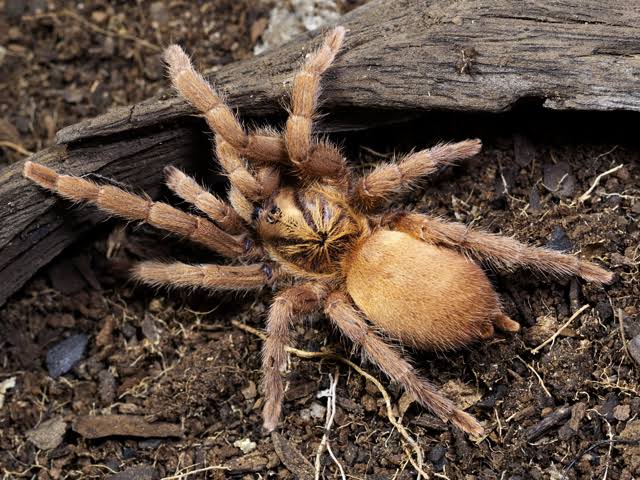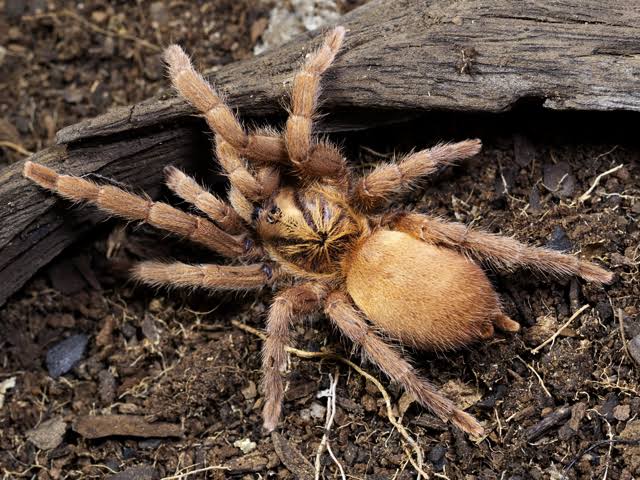Tarantuladen.co.za
Trinidad Olive (Neoholothele Incei)
Trinidad Olive (Neoholothele Incei)
Out of stock
Couldn't load pickup availability
Quick Facts
Common Name: Trinidad Olive
Scientific Name: Neoholothele incei (normal form)
Origin: Trinidad & Venezuela
Size: 2.5–3 inches (6–7.5 cm) — dwarf species
Lifespan:
-
Females: 6–8 years
-
Males: ~2–3 years
Temperament:
-
Skittish and fast, but not defensive
-
More inclined to run than fight
Coloration:
-
Muted olive or tan carapace
-
Subtle striping on legs and abdomen
-
Less flashy than GCF but still has natural, earthy beauty
Webbing Behavior
Grade A+ webber — just like the GCF
They’ll transform any enclosure into a silky jungle
One of the best species for watching web tunnel development
Housing
Enclosure Type: Terrestrial, but they behave semi-arboreally with webbing
Substrate: 2–3 inches of moist coco fiber or topsoil blend
Humidity: 70–80%
Temperature: 72–78°F (22–25°C)
Ventilation: Moderate — balance airflow with humidity
Decor:
-
Cork bark, leaf litter, moss, fake plants
-
Provide web anchors for epic silk structures
-
Shallow water dish (important for adults)
For a display tank, lean into their love of clutter — more objects = more webbing magic.
Feeding
Diet: Crickets, small roaches, mealworms (appropriately sized)
Feeding Frequency:
-
Slings: 2–3x/week
-
Juveniles: Weekly
-
Adults: Every 10–14 days
These little guys are great eaters and have fast, snappy takedowns
Why the Normal Morph Slaps Too
Same awesome behavior as the GCF — but more naturalistic coloration
Perfect for communals if raised from slings and housed properly
Cheaper and more available than the GCF in most markets
Excellent for nano or compact bioactive setups
Web-heavy, easy to care for, and endlessly entertaining
Keep in Mind
Very fast when spooked — caution with rehousing
Communal isn’t guaranteed unless conditions are right (siblings, space, hides, heavy feeding)
They might web up the water dish, so keep an eye out for hydration
Share


